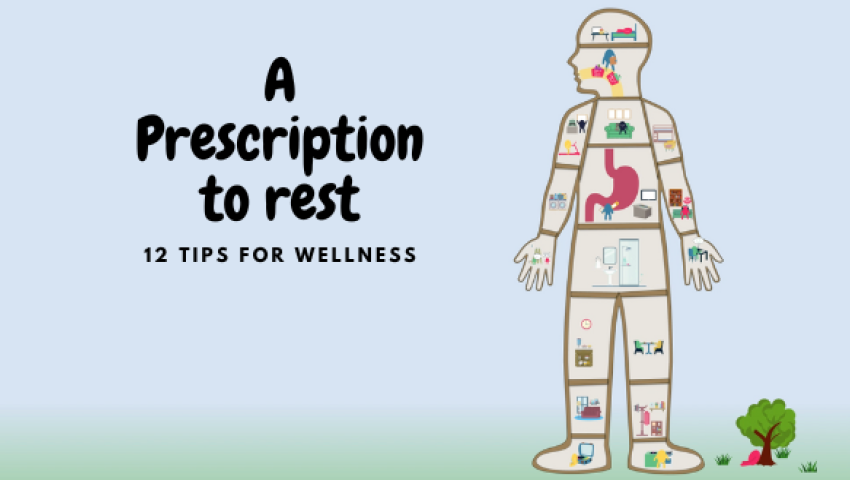We all want to stay healthy, happy, and resilient. So, how can we do this? Health and happiness require checking in with yourself to assess your needs. Think: “Am I eating well? Exercising? Stressed? Needing to say ‘no’ to some things?”. Stay tuned for a prescription to REST.
Why do we fail to take care of ourselves? Haven’t we learned our limits by now? Our lives are impossibly busy. We balance jobs, family, and never-ending daily agendas. But self-care shouldn’t feel like a burdening To-Do list item. It’s a GIFT to yourself and helps you love those around you better. And it doesn’t take a lot of time!
Here are 12 tips to beginning your journey of practicing self-care:
